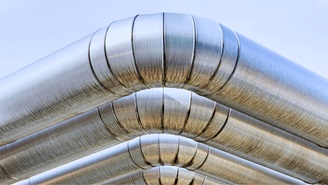On 23 May 2017, German prosecutors raided Daimler AG’s offices in Stuttgart as part of their investigation into alleged emissions fraud. The company’s shares have since tumbled 4.3 percent. Daimler’s experience is the latest reminder that investing in clean technologies is money better spent than paying penalties for non-compliance in an increasingly stringent regulatory environment.
Since Volkswagen’s “dieselgate” scandal broke in September 2015, regulators have placed leading carmakers under closer scrutiny. Regulators in the U.S. and Europe are investigating Daimler AG, Fiat Chrysler and Renault for fraud and breaching emission standards. These companies could incur billions in penalties, recall costs and compensation if found guilty.
Volkswagen recently finalized a USD 25 billion settlement with U.S. authorities in what has become one of the costliest corporate scandals in recent memory. At the company’s 2017 AGM, shareholders criticized Volkswagen for its lack of transparency in dealing with the crisis and they are demanding USD 9 billion in compensation from the company because it did not disclose the EPA probe in a timely manner.
The regulatory investigations have affected planning and strategy across the industry. Daimler AG canceled its plans to sell diesel Mercedes-Benz cars in the U.S. in 2017. In South Korea, the government revoked the sale certificates for some of Nissan’s and BMW’s diesel cars.
While French authorities are also investigating PSA Group, the maker of Peugeot and Citroën, the company firmly denies wrongdoing and has taken concrete steps to become more transparent. Immediately after the Volkswagen scandal, PSA Group began publishing real-world, third-party certified emissions results.
Sustainalytics has been following the emissions controversy closely. What started out as a corporate scandal is gradually becoming something of a systemic problem for the industry. Our research shows that 19 of the world’s major automakers are currently facing an emissions or product-related controversy. We assess controversies on a 0-5 scale. In our view, level 3 controversies and above could pose particularly significant business risks.
Source: Sustainalytics Research
Is Carbon Next?
Nitrogen oxide (NOx) emissions from diesel engines have severe impacts on human health and the environment, but they are not the only ones under the lens – or rather in the filters – of regulators and industry analysts. According to reports from the Brussels-based NGO and think tank, Transport & Environment, carmakers in Europe have been exploiting so called “test flexibilities” and loopholes in regulation to artificially reduce CO2 emissions registered during tests.
The think tank’s Mind the Gap 2016 report revealed that the fuel economy claimed by carmakers is not realized in real world driving conditions. If it remains, this gap between laboratory and real world performance will have a number of troubling implications. One is that, by 2030, European consumers will have spent an additional EUR 1 trillion on fuel. Another is that cars will have emitted an extra 1.5 billion tons of CO2.
What will revised test procedures and stricter regulation mean for carmakers?
The European Union has reformed test procedures as a result of the scandals. As of September 2017, new car models will be subject to stricter tests that are more representative of real world driving conditions. While more independent and pan-European oversight is needed, these reforms constitute an important first step, especially considering the political support the auto industry enjoys and the opposition from German, Italy, France and Spain.
Against the backdrop of increasingly stringent emission standards and test procedures, carmakers will need to decide between investing in new, cleaner alternatives or fighting new regulation and settling fines for non-compliance. We believe this is an easy choice.
Recent Content
DEI Rollbacks: Impact on ESG Risk Ratings and Broader Implications for Investors
This article covers how not all reported rollbacks in diversity, equity, and inclusion (DEI) initiatives will have the same impact. Due to the relatively low weight of DEI in Sustainalytics’ ESG Risk Rating, we do not anticipate significant changes to overall ratings.
Industrial-Scale Decarbonization in the EU: Stewardship Field Notes From Germany, France and Spain
This article covers how Morningstar Sustainalytics’ Stewardship Team embarked on a field trip in November 2024 to learn how EU industry leaders are navigating the complex challenges of the energy transition.






